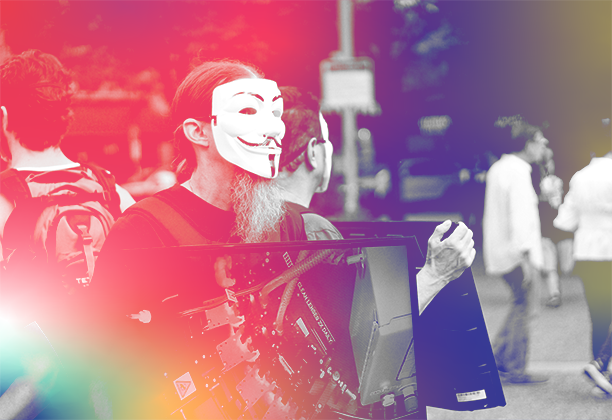About the initiative

What’s the problem when face recognition technology fails to “see” Black faces, when Artificial Intelligence (AI) based geospatial surveillance technology renders Black lives hyper or when data harvested in menstruation apps is used by pro-life groups to accuse women of abortion? These examples show that digital technologies and AI in particular replicate and deepen rather than challenge these past and current racialized, gendered and spatial inequalities.
The contribution of the “Digital In/Justice Initiative” to the UniBE Vision of the Digitalization Strategy 2030 is the development of an intersectional research agenda able to systematically analyze gendered and racialized power relations that structure and shape human beings’ interactions and experiences with digitalization and AI. The UniBE Digitalization Strategy 2030 states that “the Human Being is at the heart of digital transformation” as “digitalization impacts people and their interactions”. This initiative unpacks “the Human Being” by embedding them into their social contexts and revealing how, especially the increasing spread of AI into our mundane lives (re)shapes social inequities.
The main objective of the initiative is to develop a transdisciplinary and intersectional approach to analyze how digital data and AI reinforce but also potentially challenge and transform intersectional social inequalities. It centers the concept of digital justice to account for the root causes of structural inequalities such as racism, sexism and ableism that continue to shape digital spaces, algorithms and large language models. Digital justice emphasizes the importance of equal access for all people regardless of their gender, sexuality, race, age, nationality, citizenship, dis/ability, socioeconomic status, and location to participate fully in the digital world as producers and consumers of digital data. It works towards recognizing and rectifying algorithms and AI’s bias, discrimination and harmful impact on marginalized groups.
Building on critical feminist, Black and decolonial perspectives on digitalization, this initiative develops an intersectional approach to study digital in/justices along four modules:

Data bodies: datafication of bodies, algorithmic intimacies, and new connectivities
In today’s digital economy, even intimacy is datafied. Digital transformation permeates love, care, sex, friendship, family-making, and reproduction. This module examines how “intimate technologies” shape “digital intimacies” in communities such as Black youth, rural LGBTQI+ groups, and migrants with specific (mental) health needs. It focuses on: (1) the datafication of gendered and racialized bodies; (2) algorithmic intimacies.
Laboring bodies: digital work, platform economies, and self-entrepreneurs
Digitalization has reshaped the world of work. Feminist scholarship has critically examined digital labor and its gendered effects. This module explores an intersectional approach to (1) digital platform labor and (2) digital commoning of software, currencies, and blockchain technologies as practices for more just, transparent, and non-hierarchical work and production.


Contesting (the digitalization/datafication of) bodies: Digital dissent, disentanglements and data activism
The digitalization and datafication of bodies, lives, and work is contested. This module explores forms of “digital activism”, “data activism”, “digital resistance” and “digital disentanglement”. In collaboration with artists and activists, it focuses on: (1) justice-based digital activism; and (2) artistic and activist efforts by marginalized groups to disconnect from surveillance and digital dependency.
Developing an intersectional and transdisciplinary digital methodology
This transversal module develops a transdisciplinary, intersectional digital methodology to co-produce knowledge for social change. It advances methods from the social sciences and digital humanities—such as web scraping, digital ethnography, social media analysis, and critical algorithm studies—through an intersectional lens, with a focus on gender and race.

